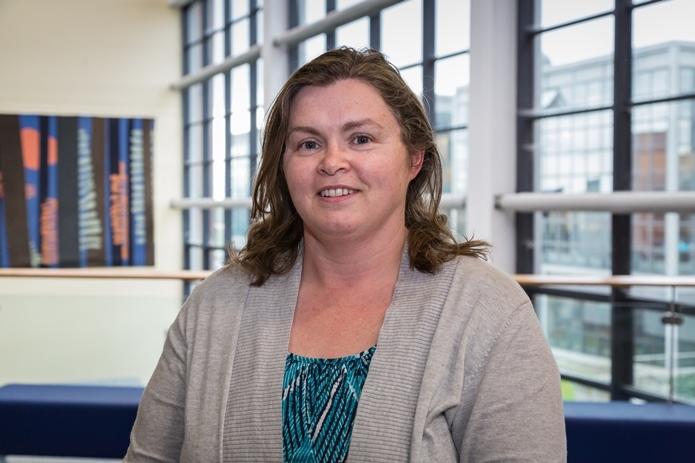

Spotlight on research: Dr Eilish McLoughlin of CASTel
This week's Spotlight on Research is with Dr Eilish McLoughlin, Director of the Centre for the Advancement of STEM Teaching and Learning (CASTeL) and an academic member of the School of Physical Sciences at Dublin City University (DCU).
You will be throwing the doors of DCU open for lots of visitors in the coming months, can you explain?
“We have a few big events between now and the end of the summer. On May 5th we will host SciFest @ DCU, we have around 250 secondary school students presenting their science projects.
This is the 10th year of the SciFest competition so it’s a really special one. Then over the summer we will have two massive conferences on science education. In July CASTeL at DCU is hosting GIREP-ICPE-EPEC 2017, a trio of major conferences on physics education.
We expect about 400 people from around the world will gather to talk about topics such as physics education in Africa and women in physics, and there will be focused workshops for teachers of physics.
Then in August, DCU and the University of Limerick co-host the European Science Education Research Association (ESERA) conference 21-25 August 2017.
We reckon around 1600 people will be there from 64 countries, making it the largest conference in the world on science education. It’s going to be spectacular!”
So it’s safe to say you are keen on outreach and sharing information?
“Yes that’s a passion of mine. It takes a lot of work to organise these meetings, but it’s really important that we share best practices in STEM education and that teachers are aware of new discoveries in STEM - and also the new thinking on the most effective ways to teach and assess science learning.”
Why is it so important for science teachers in particular to have those up-to-date skills?
“Well if you think about medicine or dentistry or accounting, the people who work in those fields need to continue their professional education in order to keep abreast of the changes.
The same is true for education, and in the case of science, a teacher who did their initial teacher preparation 20 or 30 years ago did so at a time when some major discoveries in physics/science had not yet been known.
We are also constantly researching and learning more about the pedagogy, or the practice of teaching and learning, and it's important for teachers to be aware of these.
That’s why we run workshops in DCU over the summer for science teachers, and we are always trying to engage more.”
What about teachers who are teaching physics but who maybe specialised in another area of science?
“This is called out-of-field teaching and it’s a big problem for physics. In Ireland, the vast majority, about 80%, of secondary school science teachers at Junior Cert level specialised in biology.
So maybe it’s no surprise that the vast majority of students go on to choose biology rather than physics for their Leaving Cert.
I would like to see science teachers becoming more familiar with physics through continuing professional development (CPD) courses such as the ones we run at DCU.
I think this could increase the numbers of students choosing physics at Leaving Cert, which in turn could increase the number of students with options to go on to study physics and engineering at third-level.
In DCU we also work with the teachers who doing their initial preparation - we immerse them in new approaches to teaching physics.
We want the next generation of teachers to be well versed in the latest options.”
Many of us have already been through school, so if we didn’t study physics there have we missed the bus?
“No not at all. You can always learn more about physics! I lead a national STEM education programme called Physics Busking.
It has been on the go since 2005 and we basically set up camp in public spaces – particularly at events where crowds gather, like Bloom or the BT Young Scientist and Technology Exhibition – and we run interactive physics demos and experiments.
Science Foundation Ireland (SFI) have been supporting it since 2014. The response to our busking sessions is always huge, people of all ages love it. We have queues lining up to take part.”
Sounds fun! And what else are you working on?
"I have just started leading a new project – also funded by SFI - where we are looking to encourage best practice in encouraging gender diversity in physics.
We will pilot it first in six schools, and we will work on a whole-school basis, running workshops for teachers and bringing in unconscious bias training.
This kind of approach improves the quality of education for the whole school and for boys and girls in physics, but the specific aim is to create an environment where more girls choose to study physics.
Then that could follow through to better gender representation in professional and academic physics and engineering.”
And finally, what do you wish people knew about physics, Eilish?
“I love physics because it inspires you to observe and to ask a lot of interesting questions, to try out different ways of answering them.
You never stop learning in physics, there is always a new curiosity. I think sometimes people shy away from physics because they think it is too maths-based and they don’t have the confidence with maths to try it.
But for me, physics is about understanding concepts about how the universe and everything in it works, and we use maths and other representations to explain what’s happening.
Hopefully as STEM education methods move towards more inquiry-based learning and assessment, school students will also develop that love of the concepts and the ‘figuring out’ and we will see more young people choosing to deepen their knowledge of physics further.”
